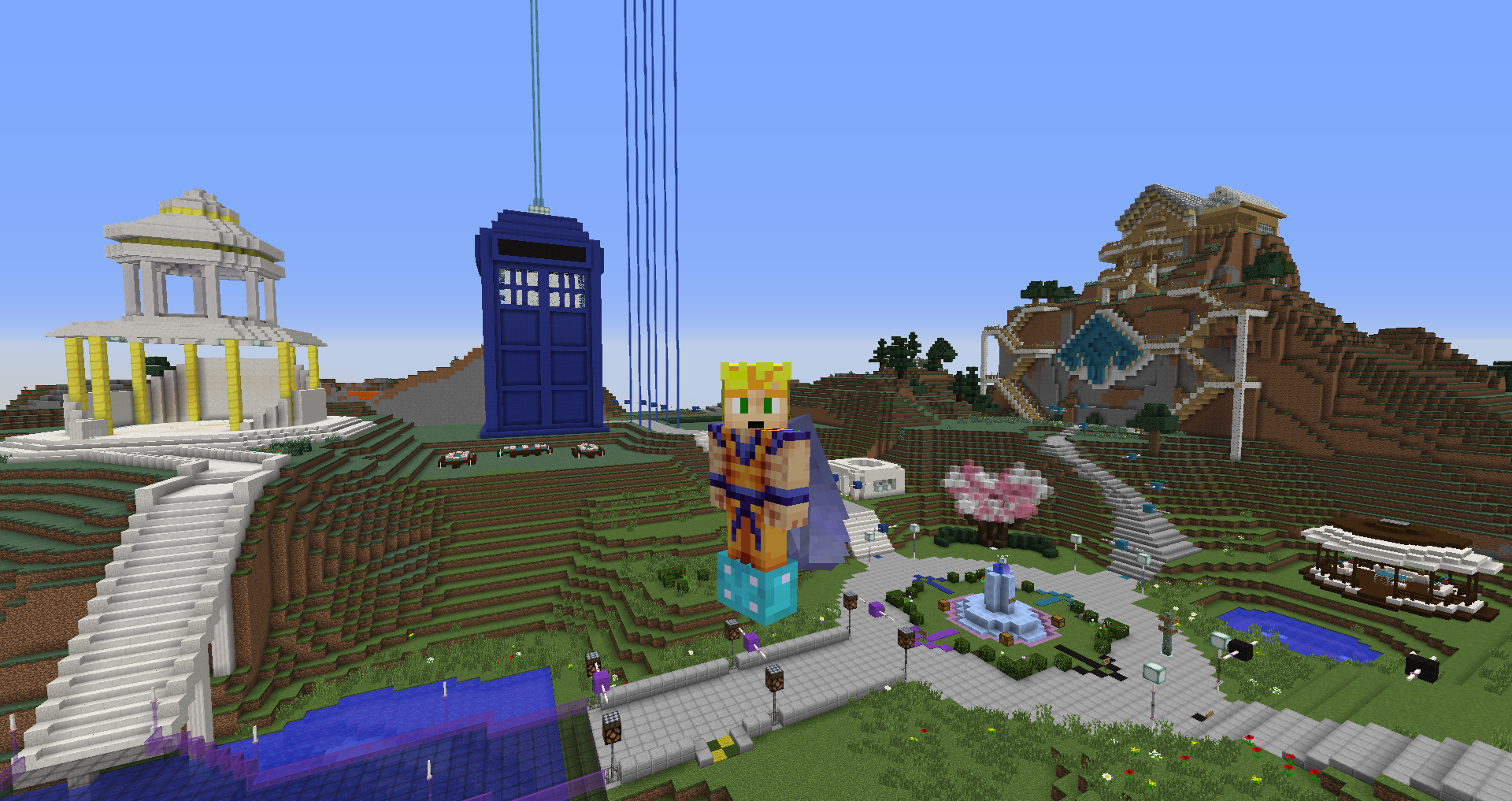
Serving The Autistic Block By Block, In Minecraft
Providing a safe place for online fun can be easier said than done
Stuart Duncan had enjoyed playing Minecraft with his two kids for years before he ever thought of hosting his own Minecraft server that the public could join. Though his older son, now 11, is autistic (as is Duncan), the three of them could spend hours building whimsical structures out of the blocks of dirt, wood, and cobblestone that make up the world, and fighting off zombies, skeletons, and “creepers” in their quest for ever greater treasure — or simply in an attempt to grow some virtual wheat to feed their virtual sheep.
But in 2012 and 2013, when Minecraft was making headlines for the fun and accessible gameplay that has now captured imaginations around the world — it has sold more than 121 million copies to date, more than any other PC game — Duncan found that many commenters on his blog about autism were lamenting the fact that autistic people were often bullied on public Minecraft servers.
“Parents were saying, ‘When my child goes to play on public servers, the players there destroy everything they make and steal all their stuff and kill them over and over and over again,'” Duncan told Good Turns recently. “The worst was that these bullies were saying terrible, terrible things once they found out these players were autistic, telling kids they’re defective, or saying they’re retarded and they should kill themselves to save their parents the trouble. It was heartbreaking to hear.”
But when parents on the blog started asking if there were other autistic children who were interested in playing Minecraft with their kids, Duncan had an idea. “I thought this was something I could help with,” he says. “So I got myself my own Minecraft server, and the rest is history.”
On June 23, 2013, Duncan opened Autcraft, a Minecraft server for children (and adults) who have autism, and their families. To gain entrance, players must fill out an application form and go through a light vetting process that currently takes about two weeks. Along with standard questions about whether applicants have been banned from playing on other servers, and under what username, the form also asks who in the family has autism, and asks for parental contact information. “I research every single person that applies,” Duncan says. “When somebody submits their username and information, I look at various Minecraft ban sites [which list players that have been banned for bad behavior], but I also go into Google and search their username, and I look through every single page and result, forum posts, anything that could be an indicator that they’re just a troll trying to get in and cause trouble.”
In the four years since its launch, Autcraft’s volunteer staff has grown to more than 40 people, including 10 administrators, 8 senior helpers, and 25 junior helpers — all of whom started out as players on the server and earned Duncan’s trust there before becoming part of the server’s crew. The helpers and admins help Duncan keep the server a safe place for everyone to play.
“What makes the server so very different is we take a very hands-on approach and talk to these kids and get to know them and be there when they need us,” Duncan says. “We don’t punish anybody. If someone gets angry and is saying terrible things and we have to remove them, that’s a timeout, not a ban. We ask them to come back when they calm down. We contact the parents and let them know, we talk to them too.” Even when kids end up in virtual jail for a few minutes — where they can cause no more harm or hurt feelings — Duncan is clear that no one is angry with them, it’s just because they need to talk with them. “They generally appreciate that, as do their parents.”
“I don’t want any child who might be feeling suicidal to not have access to this because their parents can’t pay for it.”
In October 2015, Duncan left his job as a Web developer to devote himself full-time to Autcraft. “A big part of the decision was that a lot of kids were coming on the server to talk to me,” Duncan says. Something like twice a week, on average, he’d have a child on the server telling him they were “feeling suicidal due to bullying, feeling outcast, alone in the world.” For Duncan, that was the moment. “I knew I had to make Autcraft my job or else I couldn’t be there for the kids.” Where possible, he contacts parents as soon as he hears such news from kids on the server.
Duncan now has more than 8,200 usernames on the server’s whitelist, and see about 1,200 different usernames in a given month, though there are usually only about 40 people on the server at any given time. He charges nothing to play on the server, but takes donations via a Patreon page.
“What makes Autcraft work really well is the diversity,” he says. “We have autistic children and autistic adults, but we also have parents and aunts and uncles of autistic children, and educators and counselors. Some of the junior helpers are siblings of autistic children. It’s like the autism community as a whole.”
“When I decided to make Autcraft my job, a lot of people told me to charge for it,” Duncan recalls. “But I said no, because the kids who need it the most are often the ones who have parents who either won’t or can’t pay a monthly fee. They have therapist bills, medications, special diets. You have to buy the game, and have a computer to play it on. It would solve a lot of problems if I charged for access, but I don’t want any child who might be feeling suicidal to not have access to this because their parents can’t pay for it.” Indeed, the virtual world seems a better place with Autcraft available due to Duncan’s playful good turn.
Posted June 16, 2017





